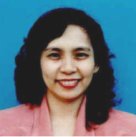|
Plenary Lecture
Investigating Effects of Drug Therapy for HIV Infection
by Double Compartments Cellular Automata Simulations

Professor Yongwimon Lenbury
Dept of Mathematics, Faculty of Science, Mahidol
University, THAILAND
Centre of Excellence in Mathematics, PERDO, CHE,
THAILAND
Mahidol University, THAILAND
E-mail:
scylb@mahidol.ac.th
Abstract: The progress of
human immunodeficiency virus (HIV)
infection typically follows a
three phase pattern; the primary
response phase, the clinical
latency phase, and the final phase
of onset of acquired
immunodeficiency syndrome (AIDS).
In order to test the efficiency of
different protocols in drug
therapy for HIV patients, it is
important to have a realistic
model which reliably simulates the
course of the infection which
exhibits two drastically different
time scales, days and decades. The
classical ordinary or partial
differential equations have been
found to be inadequate in coping
with such extreme spread in time
scales. In this paper, we employ a
two-compartment Cellular Automata
(CA) model to study the dynamics
of drug therapy of HIV infection.
The levels of healthy an infected
CD+T cells are tracked in both the
lymph node and peripheral blood
compartments coupled and updated
simultaneously with each time
step. The viral loads in the two
compartments are also updated
through a system of difference
equations. Drug therapy is then
simulated by incorporating its
effects in the update rules of the
CA model. By adjusting the rules
to update the cells in the CA
lattice, it becomes possible to
study the efficacies of different
treatment strategies or drugs of
choice, as well as the
repercussion of drug resistance
over time.
Brief Biography of the Speaker:
After Professor Yongwimon Lenbury
obtained her Ph.D. in Mathematics
from Vanderbilt University, USA,
she returned to the Department of
Mathematics, Faculty of Science,
Mahidol University to teach, and
conduct research in dynamical
modeling of nonlinear systems in
biology and medicine. She was
appointed professor of Mathematics
in 1996.
Prof. Lenbury has been involved in
research work in the field by
Mathematical Modelling and
Nonlinear Systems in Biology and
Medicine. Her work involves
dynamical modelling and analysis
of nonlinear systems such as food
chains coupled by parasitic
infections, hormone secretion
systems in the human body, and so
on. Of particular interest are the
pacemaker oscillations and
rhythmogenesis in human mechanism
which have been proposed as a way
to differentiate sickness from
health. For example, some of her
works involves the construction
and analysis of a model for
insulin kinetics and the
identification of oscillatory
behavior subject to various
feeding regimens. Her recent
interest has been concentrated in
the signal transduction system
involving GPCR, a major drug
target. She received an award from
the National Research Council as
the Outstanding Researcher in the
field of Physical Science in the
year 1998. Her continued
achievements have resulted in her
being granted the prestigious
position of Senior Researcher of
the Thailand Research Fund in
Mathematics, 2000-2002 and a
Fellow of the Royal Institute of
Thailand. Collaborating with
several researchers in various
countries such as the United
States, Germany, Italy, and New
Zealand, Prof. Lenbury has been
devoted to the promotion of
research and education in the
field of Mathematics in Thailand.
|